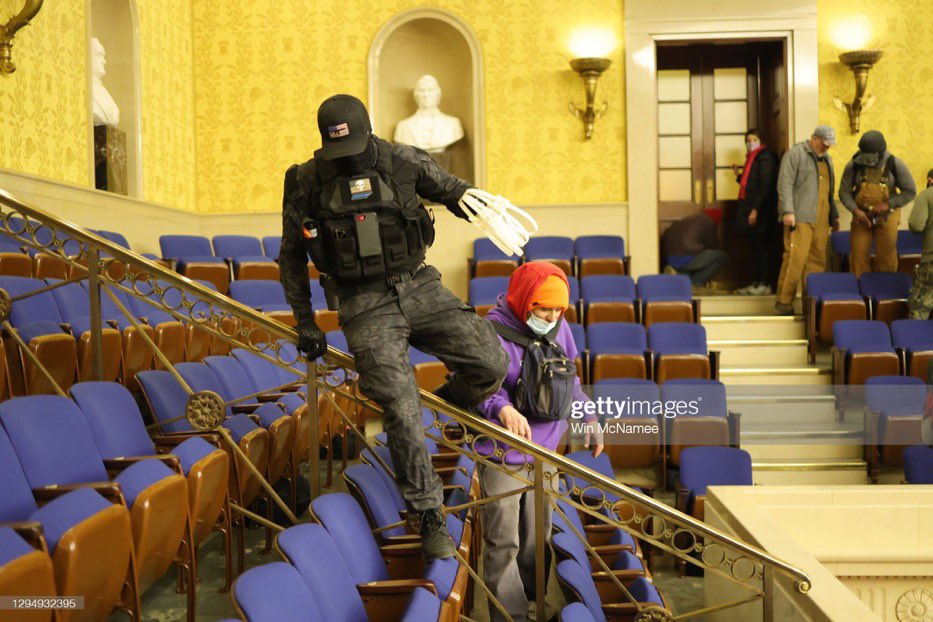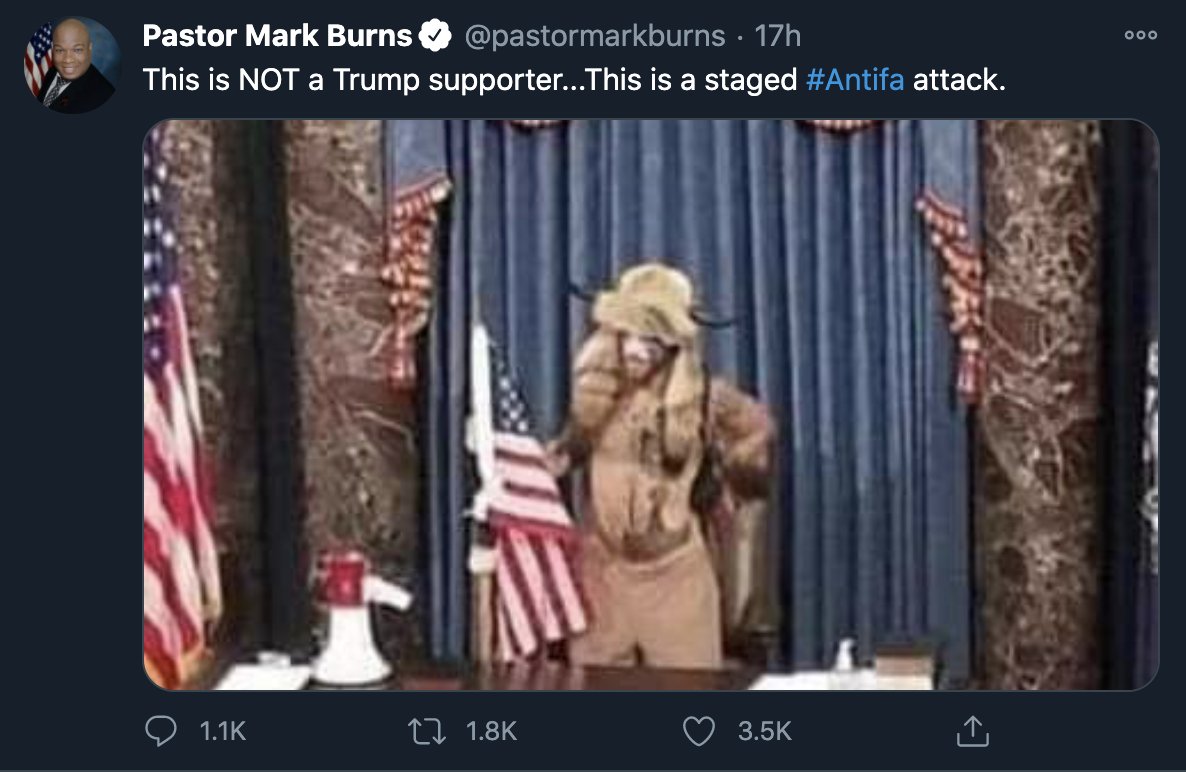
On Wednesday mid-afternoon, I found myself simultaneously alarmed and mildly amused by the events on the Capitol. The first photos that came out were of quixotic, not particularly threatening folks like the QAnon Shaman. 

It certainly was a bad sign for the state of our politics, but it fit with the "what if Watergate but stupid" view of the Trump regime. It didn't seem particularly sinister, in other words.
But then more photos started coming out, photos that were not amusing in any way. I felt the turn viscerally as my stomach dropped. Maybe for you it was the barricaded Senate chambers. For me it was this photo: 

That is a man who came for trouble. He's not a silly "riot tourist" stealing a lectern w/ a shit-eating grin. He's a bad dude there to do bad things.
He's armed & armored carrying zip ties. There aren't many non-sinister reasons to be carrying zip ties around the capitol.
He's armed & armored carrying zip ties. There aren't many non-sinister reasons to be carrying zip ties around the capitol.
Just to be clear for those who don't know, zip ties are used to secure peoples' hands and feet. When you take them into action, you have them partially pre-zipped so that you can quickly slip them on someone. It's a classic tool of the hostage-taker.
Bear in mind, it was only a few months ago that alt-right terrorists planned the occupation of the Michigan state capitol building, taking hostage lawmakers, and executing Governor Gretchen Whitmer. Something similar might've been planned for DC on Wednesday.
If so, thankfully they failed because lawmakers were successfully evacuated. But realize just how serious this might have been. Using a protest march--whipped to a frenzy by an oafish narcissist--would've been the perfect set up.
Again, this is not dispositive, but it's also quite possible and something that's bothering security experts.
wbur.org/hereandnow/202…
wbur.org/hereandnow/202…
The last time far right-wing violence was this concerning was the 90s with the attacks on abortion clinics and the OKC bombing.
If QAnon continues to metastasize and takes a violent turn now that a Democrat takes office, we could be looking at a similar wave of terrorism.
If QAnon continues to metastasize and takes a violent turn now that a Democrat takes office, we could be looking at a similar wave of terrorism.
This would track, of course, with the wave in the 90s. Once Bush Sr. left office and Democrat Bill Clinton took over, the far right movement went into overdrive. Militias started popping up all over, white supremacists had a recruiting field day.
All of that to say, don't be surprised if in the next several years (or even the next twelve days) a QAnon true believer, angry about the death of QAnon advocate [note the shirt] and "martyr" Ashli Babbit, commits an act of terrorism in her name. 

She could play the same role that Vicki Weaver did in the 90s, when federal agents shot her at the Ruby Ridge standoff. It was a key event in the radicalization of Timothy McVeigh, the OKC bomber.
All of that to say, this might not be over. The worse could be yet to come. Adjust your expectations accordingly and then think about how that should calibrate your reaction to the political questions of the moment.
• • •
Missing some Tweet in this thread? You can try to
force a refresh




